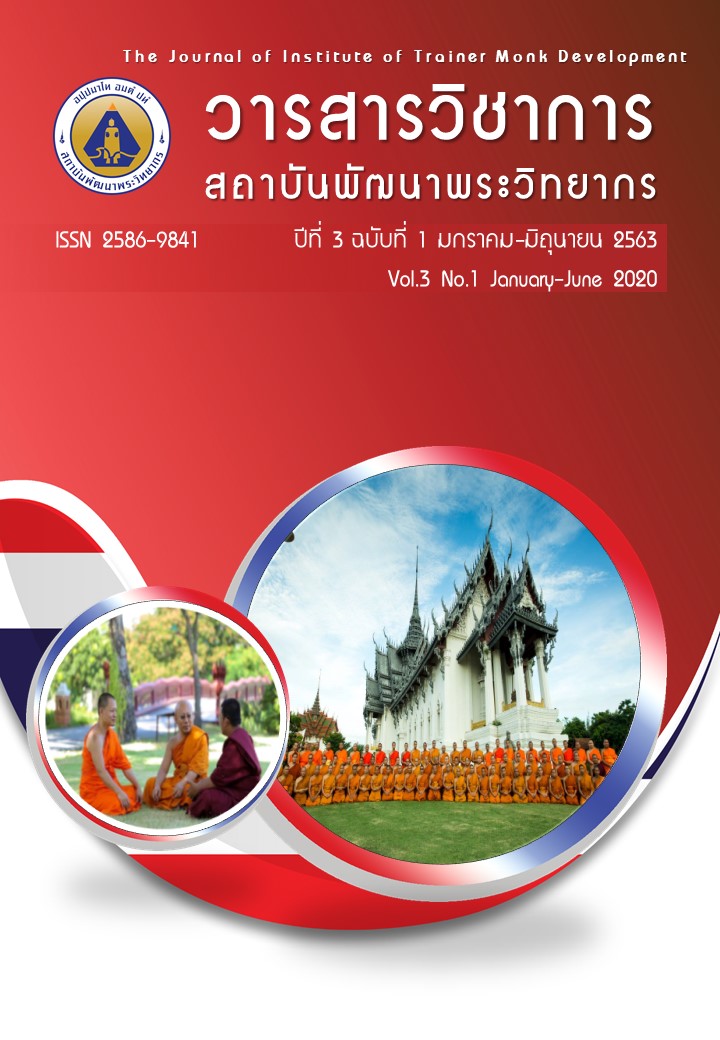AN ANALYSIS OF THE DHAMMA PRINCIPLES IN MERIT DEDICATION TRADITION OF BUDDHISTS IN HAT KAM SUB-DISTRICT MUNICIPALITY AREA, MUEANG DISTRICT, NONG KHAI PROVINCE
Main Article Content
Abstract
This article entitled to study the Dhamma principle in merit-making tradition for dedication as appeared in Theravada Buddhism; to study the merit-making traditions of the Buddhists in Hat Kam sub-district municipality area, Mueang district, Nongkhai province and to analyze the value of the merit-making traditions for dedication in Hat Kam sub-district municipality area. This is a qualitative research done by the documentary analysis, in-depth interview and focus group. In the research, it was found that to make merit dedicated to the departed or to distribute the Buddhist offerings as appeared in Tipiṭaka develops from the beliefs in special merit-making dedication in Brahmanism in the ceremony that may be called as the ceremony done for merit-making dedicated to the parted. When Buddhism occurred, Buddhism improved the mentioned concept from the merit-making for the God and then to change to train individuals to know how to give donations, to observe the precepts and develop the mental culture instead by focusing on the dedication for giving the merit to the departed. The merit-making tradition for dedication of the Buddhists in the territory of Nongkhai Municipality has been changed in accordance with the Isan culture that is called as the merit-charity by having the concept and the principle of Dhamma as appeared in various rituals, that is, the grateful teaching, the threefold trainings or unity etc. To make merit for dedication or merit-charity of the Buddhists in the Hat Kam Municipal area can be provided for analysis of the threefold benefactors, that is, the virtue of education: to support to create the education, in the aspect of society: to support people to have the unity and encourage to build up the virtue and the aspect of mentality: to support people to realize the virtue of mental development.
Article Details
บทความที่ได้รับการตีพิมพ์เป็นลิขสิทธิ์ของวารสารวิชาการสถาบันพัฒนาพระวิทยากร
ข้อความที่ปรากฎอยู่ในบทความที่ได้รับการตีพิมพ์ในวารสาร ถือเป็นความรับผิดชอบของผู้เขียนบทความ และข้อคิดเห็นนั้นไม่ถือว่าเป็นทัศนะและความรับผิดชอบของกองบรรณาธิการวารสารวิชาการสถาบันพัฒนาพระวิทยากร


